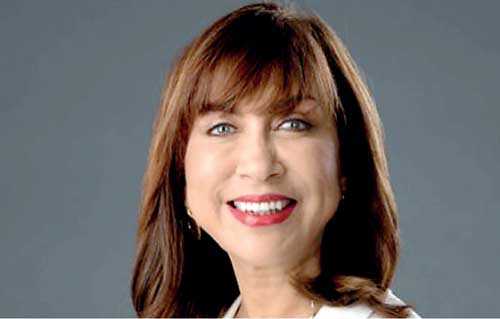Tuesday Feb 17, 2026
Tuesday Feb 17, 2026
Wednesday, 11 March 2020 01:08 - - {{hitsCtrl.values.hits}}
By Hanaa Singer, UN Resident Coordinator in Sri Lanka
Headlines from global summits have one thing in common: the overwhelming presence of men and few, if any, women taking centre stage in those photo ops. The glass ceiling for leadership roles remains thick and impenetrable to women.
Twenty-five years after the Beijing Declaration, a consensus of world leaders to accelerate women’s equality and broaden approaches to women’s issues, we have taken bold steps towards balancing the playing field, however a new report released on the cusp of International Women’s Day shows that it’s not just about policy, but about principle.
The UN Development Programme Gender Social Norms Index found that almost 90 percent of the world is biased against women. More than half of respondents said that men are better at leadership roles than women, and 40 percent said that men are better suited for politics. 
This stark bias against women is profound and insidious, and prevents nations from unleashing the potential that women have to offer, particularly in decision-making roles.
Biases can be untangled. Structures can be modified. Inequality can be erased.
In Sri Lanka, women have seen dramatic development gains over the years. Today, Sri Lankan women have long life spans, inroads with education and health, and a high literacy rate. Yet power gaps persist.
The last Parliament had only 12 women in the 225-seat legislative body, short of the global tally of one-quarter. However, the upcoming Parliamentary Elections are an opportunity to increase women’s meaningful participation in public life.
Sustainable Development Goal 5 on gender equality, calls for empowering women to enter traditionally male-dominated spaces. A commitment by all political parties to harness the contribution of women provides an ideal opportunity for Sri Lanka to advance its development agenda with women in decision-making roles.
During his International Women’s Day remarks last week in New York, the UN Secretary-General said that when women are at the table, decisions tend to bring stability; when women are economists and parliamentarians, policies tend to reinforce sustainable development that benefits more of the population.
Women and men belong at the same table whether that table is in the boardroom, the classroom, halls of justice, or halls of Parliament. Transformational change is possible.
And the run-up to the elections present the perfect time for women to engage, enter public life, dismantle bias, and watch development gains grow, because with diversity in representation comes diversity in policies.
We need more women in public and political life. We cannot afford to slide backwards. We must forge ahead with women’s equality and make this last decade for achieving the Sustainable Development Goals a Decade of Action and also a Decade of Equality.
Gender equality can be achieved in our lifetimes. It begins with a mindset shift and is supported by policy changes, enabling environments, and transformational change in all areas of life.
Inclusion matters. Representation matters.
The writer is the UN Resident Coordinator in Sri Lanka and leads the United Nations Country Team as the designated representative of the Secretary-General for development operations.